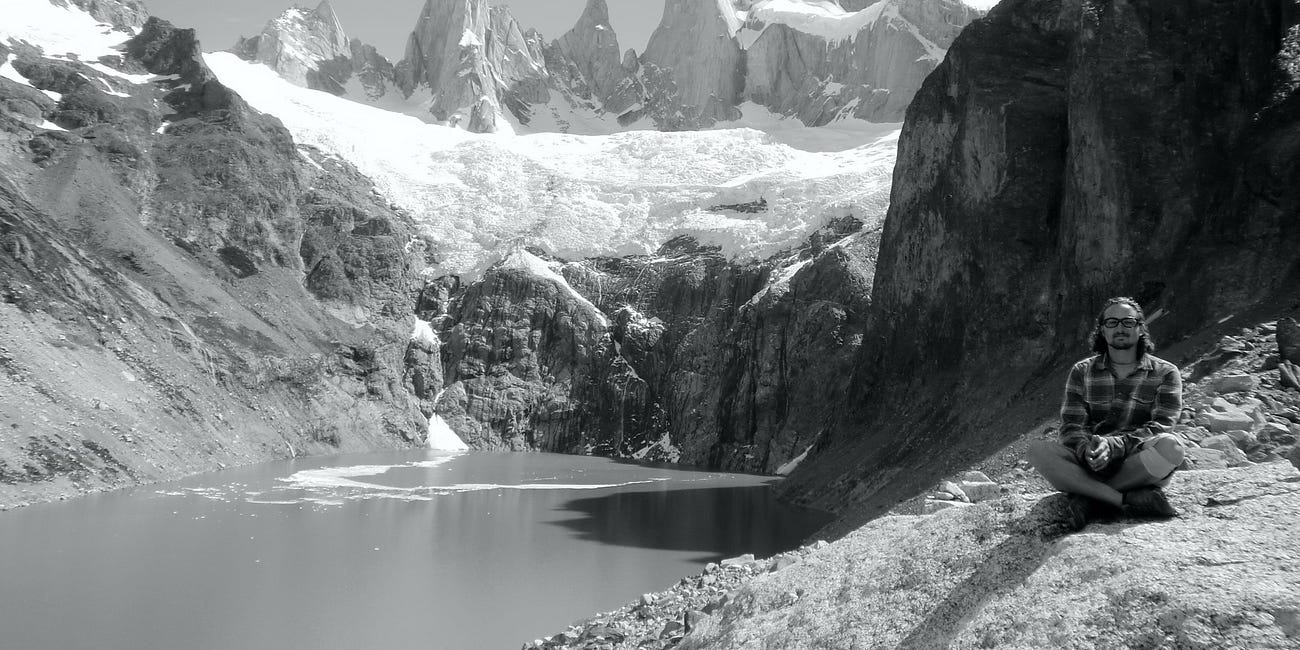We don’t deserve anything in life. Harsh, right? But I say this with a wholehearted belief in humanity—in human rights, in community, in the beauty of thinking not me but we—and yet, I also believe that none of the privileges we enjoy can be taken for granted.
If we didn’t have to fight for them ourselves, someone else did. All the things we patriotically refer to as a right, began as a fight. Nothing worthwhile gets handed over freely, except, perhaps, life itself. And so be it. Without struggle, the spoils of victory cannot be appreciated.
You can apply this to anything—and we should—but as it often goes when the world feels out of our control, especially in these modern times, I think we’ve got to first turn inward, putting the ideas to work on ourselves. Because if we want tranquility in the world, we need to start with tranquility within.
Thich Nhat Hanh, the Buddhist philosopher, writes in his book How to Fight: when you take good care of yourself, you are taking care of other people.
Now, a book on fighting from a Buddhist monk might sound contradictory. But it’s a study in contrasts, the opposition of two halves, at odds with one another and yet harmonious. To achieve peace of mind, we’ve got to fight for it—the tiger sleeps well because she is ferocious.
Like it or not, we’re in a battle every day, fending off assailants from all sides. It’s not an attack in the traditional sense. The enemies aren’t obvious. In fact, they usually want us to be their friends. Convenience, social media, the endless hustle—they’re out there desperately trying to convince us we need them, that sacrificing our peace of mind for their sake is worth it.

Did you ever see that show on History Channel called Life After People? It hypothesized what might happen if we disappeared. How the plants and animals would move into the vacant cities, reclaiming it as their own—during the Covid lockdown, we saw just that—because if you ever let down your guard, you’ll find that all life is fighting its own battle and will gladly take up residence in your absence.
Of course, that doesn’t only apply to physical space. When we’re mentally checked out, that real estate is just as valuable. The mind predators are on the prowl, as well, waiting to pounce (see the million and one things barking for your attention). But let’s stick with plants here.
has a beautiful piece about tending to our minds as a garden (read it) which reminds me of this quote from another great Eastern philosopher, Jiddu Krishnamurti:Your mind is like rich soil, and if given sufficient time any problem that comes along takes root like a weed, and then you have the trouble of pulling it out; but if you do not give the problem sufficient time to take root, then it has no place to grow and it will wither away.
I suppose much of this comes down to perspective, the context we place upon the things we see. As they say, perception is reality. And there is tranquility around us every day that can be appreciated, if approached right.
It’s easy to imagine the tranquility of sitting beside a mountain stream, listening to it ripple through the shade; but what if the same could be said for that irrigation runoff, trailing through the gutter beside a city street? Once you get close enough, is there any difference in the water, itself? Water carries with it peacefulness, no matter the environment, if you only choose to see it. (Though the same can be said for ferocity, too.)
Not long ago, a flooring contractor and I were discussing the certain tranquility of looking at such a river, a campfire, how you can watch these things seemingly forever—and he added one more item to the list: a craftsman at work. Imagine it: a carpenter, a chef, a computer programmer . . . the sounds of the saw, the knife, the keyboard, the focus in their eyes, the finished product slowly coming to life on a wall, a plate, the screen. The tranquility is in there, as well, especially when coupled with intensity. Maybe you’d call that flow.
There are things we all must do to survive this world—work being one among many—but to find that peace of mind, always remember where to put the fight.
-Martin
Did you like this story? Maybe you’ll like reading this, too . . .
Meditating with Grapefruits
I like the idea of meditating but have no fucking idea what I’m doing when I try, so mostly, I don’t. But I think I’ve figured out something approximate with grapefruits. Allow me to explain. This began in Patagonia fifteen years ago as I camped outside a little Argentine village called El Chaltén and ate a grapefruit on the banks of a meandering river. …




Damn Martin, bringing the fire with this essay. Thirty one years ago, I started on a journey of personal responsibility for my thoughts and feelings which led to how I reacted to life. People forget that almost every thing we do in a day is a choice. Love, hate, compassion, indifference, peace, serenity and tranquility. Feed your good characteristics and weed out the bad ones. Quackgrass is the hardest weed to extricate because the
rhizomes of this weed grow underground, for up to 6ft from the original plant.